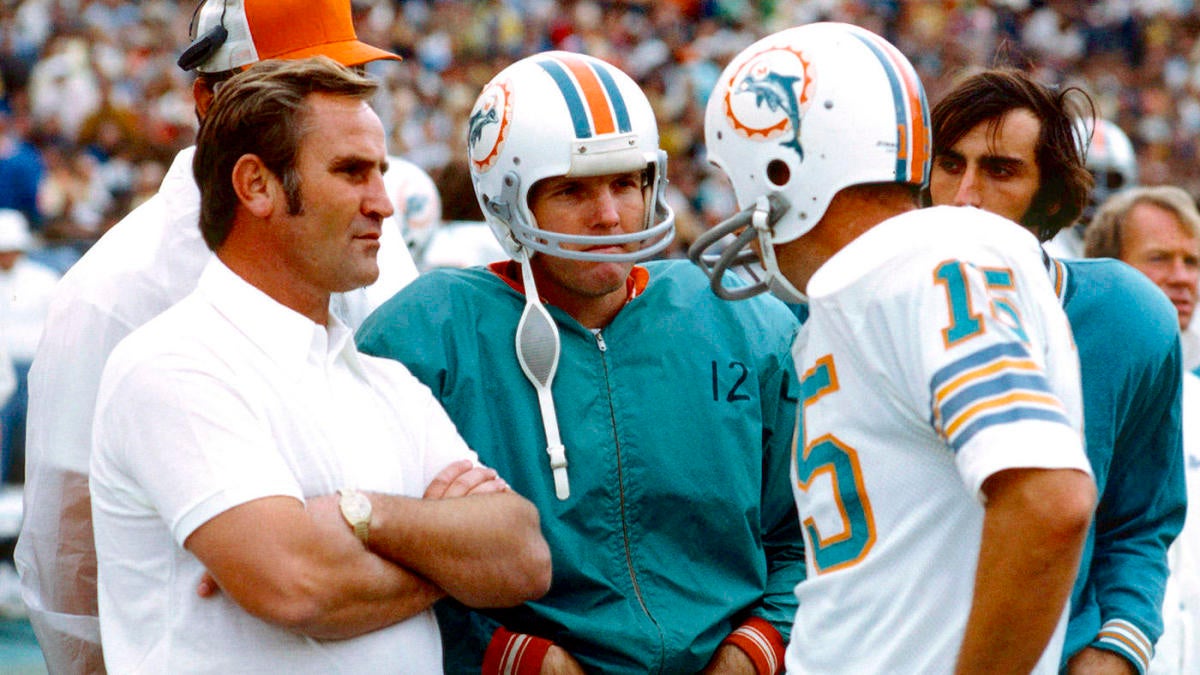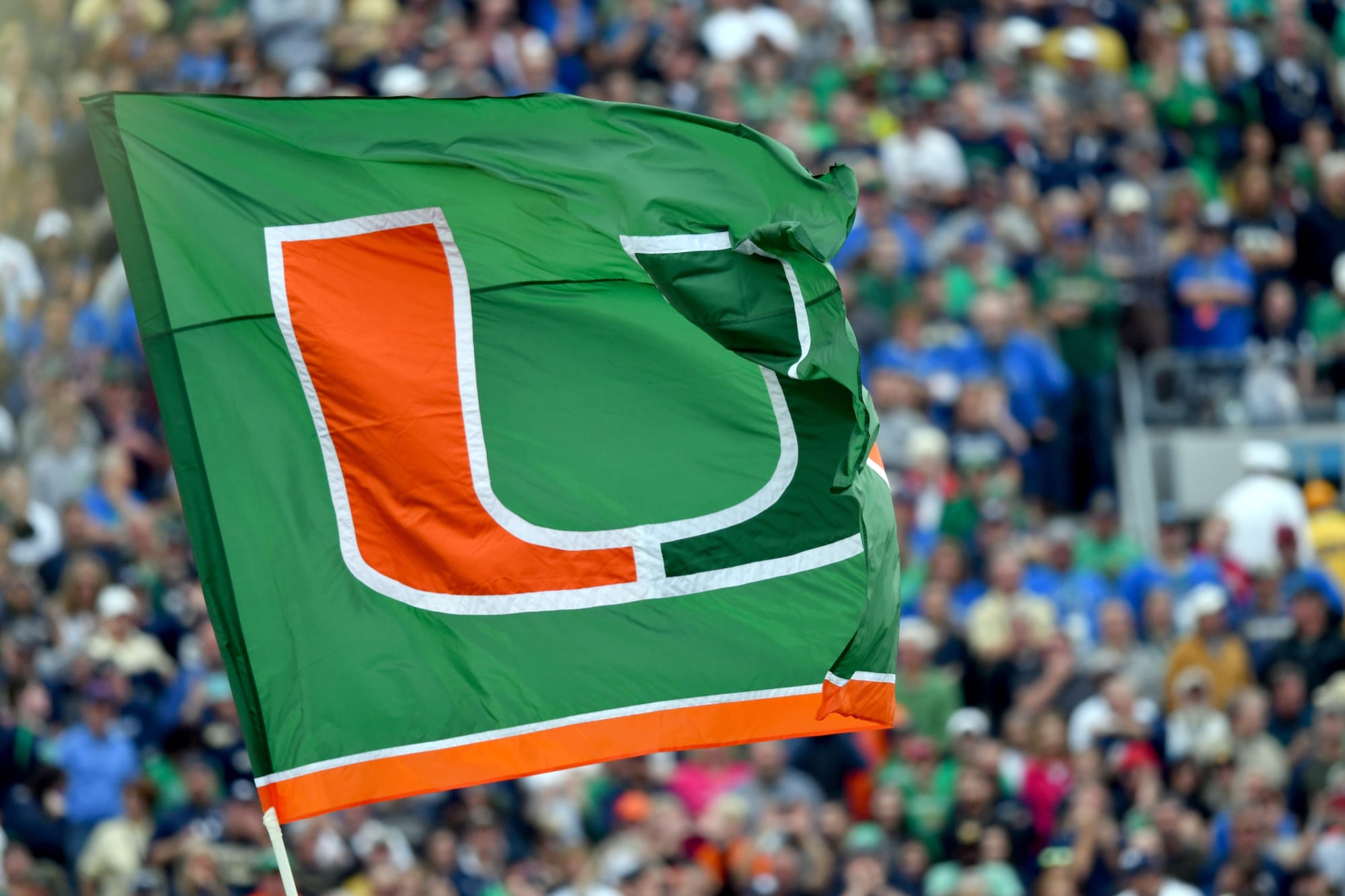1972 Miami Dolphins’ 50-year anniversary: Five interesting facts about the NFL’s only perfect season
For years, Nick Buoniconti and Dick Anderson had an annual tradition that attracted national attention. Whenever the NFL’s last remaining undefeated team lost, the then-neighbors and former Dolphins teammates opened a bottle of champagne, then toasted each other as the 1972 Dolphins’ legacy as the league’s only team to pull of a perfect season lasted another year.
Five decades later, the ’72 Dolphins remain pro football’s only team to run the gauntlet unblemished. In a twist of fate, the Dolphins’ current team is one of just two remaining teams with a perfect record through three games. Miami’s fast start has been buoyed by an electric passing attack and a formidable defense that rattled Josh Allen during this past Sunday’s 21-19 victory over previously unbeaten Buffalo.
Before the Dolphins face the Bengals on Thursday night, here are five interesting facts about the NFL’s only perfect team.
1. ‘Super’ loss spearheads perfect season
An AFL expansion team in 1966, the Dolphins won a combined 15 games during their first four seasons. Miami’s fortunes quickly changed after Don Shula became the team’s new head coach prior to the start of the 1970 season. The Dolphins made the playoffs for the first time in 1970, and in 1971, Miami won its first playoff game after defeating Kansas City in the longest game in league history.
Midnight struck on the Dolphins’ Cinderella season in the Super Bowl, however, as the more seasoned Cowboys dominated the game. The loss held historical significance, as the Dolphins became the first team to not score a touchdown in the Super Bowl.
“Dallas made us look bad that day,” Dolphins star fullback Larry Csonka said in a documentary of the ’72 team. “Dallas made us look bad because we already made ourselves look bad, and I knew that. That served as the launchpad for the undefeated season.”
Shula, who fell to 0-2 in Super Bowls after his 1968 Colts team was upset by the Jets in Super Bowl III, had a short but impactful postgame message to his team after their 24-3 loss to Dallas.
“He just looked at everybody and said, ‘This is not going to happen to us again,'” defensive lineman Manny Fernandez recalled.
Shula also had a message for the city of Miami after the game. The city wanted to throw a parade for the runner-up Dolphins, a parade that Shula didn’t let happen.
“I refused to have the parade,” Shula recalled. “I said, ‘I don’t believe in having a parade for losers. Hopefully, in the future, we’re going to have a parade recognizing us as winners, and we’ll be there for that.'”
Please check the opt-in box to acknowledge that you would like to subscribe.
Thanks for signing up!
Keep an eye on your inbox.
Sorry!
There was an error processing your subscription.
2. Former MVP comes through in the clutch
Bob Griese deservedly gets the credit for being the starting quarterback of the ’72 Dolphins. But his backup, former league MVP Earl Morrall, was the Dolphins’ starting quarterback for 11 of Miami’s 17 wins that season. Morrall replaced an injured Griese five games into the season and remained the team’s starter until Shula reinserted Griese into the lineup during the AFC Championship game.
The Colts’ starting quarterback in 1968, Morrall was replaced by Johnny Unitas in the starting lineup after Baltimore’s shocking loss in Super Bowl III. Morrall, who was benched in favor of Unitas late in that game, was called upon to help the Colts finish their 16-13 win over the Cowboys in Super Bowl V after Unitas suffered an injury during the game.
At 38, Morrall was again thrust into action to keep the ’72 Dolphins’ season afloat. He responded by having the second-best season of his career, second only to his MVP campaign in 1968. And while he was not Miami’s starting quarterback in Super Bowl VII, Morrall earned a second ring while also receiving a lifetime of gratitude from his coach.
“When I look back at my coaching career and all the quarterbacks that I’ve coached, I’ve got Hall of Famers in Johnny Unitas, Bob Griese and Dan Marino,” Shula said. “Well, Earl Morrall is in my personal Hall of Fame.”
3. History-making backfield
Morrall was an All-Pro that season, but the heart of the 1972 Dolphins offense was a powerful running game that featured Csonka, Mercury Morris and Jim Kiick. Csonka and Morris became the first pair of teammates to each run for over 1,000 yards in a season. Csonka ran for 1,117 yards and six touchdowns while averaging 5.2 yards per carry. Morris ran for 1,000 yards and 12 touchdowns while averaging 5.3 yards per carry. Both backs enjoyed the luxury of running behind a talented offensive line that was anchored by Hall of Fame guard Larry Little.
While he was a third wheel that season behind Csonka and Morris, Kiick still managed to gain nearly 700 all-purpose yards during the ’72 season. He came up big in the playoffs, scoring a touchdown in each of Miami’s playoff wins that included a pair of scores in the AFC Championship.
4. Road playoff team (?)
Despite posting a perfect regular-season record, the Dolphins had to travel to Pittsburgh to play the Steelers in the AFC Championship game. Back then, the home teams in the playoffs were decided based on a yearly divisional rotation. The only exception was for wild card teams, who would always play on the road. Within each conference, the three division winners and one wild card team qualified for the postseason. There was no playoff seeding at that time — something that wouldn’t be implemented until 1975. So, for those reasons, an undefeated team had to play on the road for the right to go to the Super Bowl.
Trailing Pittsburgh 7-0, Shula decided to gamble by calling a trick play that would turn the game on its head, literally. With Pittsburgh’s special teams unit going through the motions, Dolphins punter Larry Seiple took the snap, waited for the Steelers players to turn downfield, then tucked the ball into his arm while finding room to run on the far sideline. Seiple’s 37-yard run, the longest run of the day by either team, set up Csonka’s game-tying touchdown.
“From the game film we had seen, when they ran a certain return, everybody would hit and then they would peel to the outside,” Shula recalled, “and as Larry stepped up, he saw them starting to peel, not paying any attention to him. So he just followed them as they peeled to the outside.”
Trailing at the start of the third quarter, Griese’s 52-yard completion to receiver Paul Warfield set up the first of two second-half touchdowns by Kiick, as the Dolphins turned a 10-7 deficit into a 21-10 lead. Miami would then hold off the Steelers’ comeback attempt to post a 21-17 win.
Speaking of Warfield, the future Hall of Fame wideout averaged 20.9 yards that season while making his sixth of seven consecutive Pro Bowls. He was part of a Dolphins offense like, that their defense, finished first in the league in scoring.
5. Saved by the goal post
Miami’s “No Name” defense dominated Washington’s offense in Super Bowl VII. The unit didn’t allow a point while holding league MVP Larry Brown to just 72 yards on 22 carries. Jake Scott’s two interceptions won him game MVP honors, while Fernandez recorded a whopping 17 tackles.
The Dolphins defense did receive some help, however. Ahead 14-0, the Dolphins defense finally started to give way to Washington’s offense. Washington was on the doorstep of its first touchdown when Billy Kilmer spotted a wide-open teammate in the end zone with 5:55 left. But the pass never reached Kilmer’s intended target, however, as his pass hit the bottom of the goal post, which were placed in front of the end zone until 1974. Kilmer was picked off by Scott on the game’s next play, preserving the shutout.
While Washington did find the end zone minutes later following Miami kicker Garo Yepremian’s epic gaffe, it was too little too late. The Dolphins defense sealed the 14-7 win as well as the perfect season when Bill Stanfill sacked Kilmer on the game’s final play.
The Dolphins quickly celebrated their historic win by hoisting Shula into the air. And yes, the Dolphins did have their victory parade shortly afterward, and would host a second parade the following winter after repeating as world champions.
“One time, one place in the universe, one space, was occupied by perfection,” Csonka said of Miami’s perfect season. “And we got to be a part of it. And I’m damn proud I got to be a part of it.”



